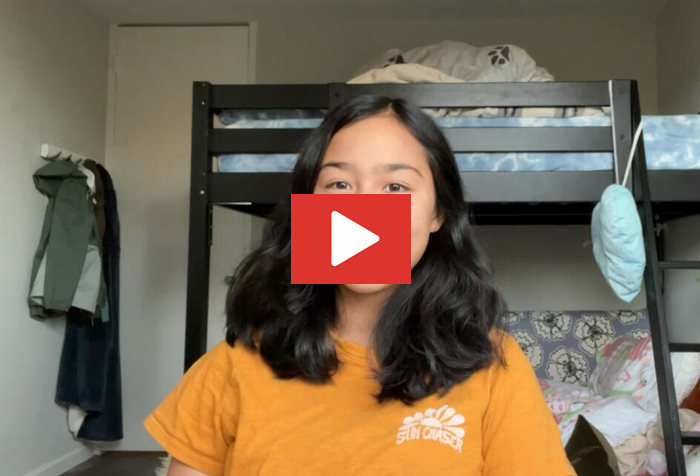Top 10 Most Popular Chinese Words - 2014
Hot Chinese Words Top 1
土豪 (tǔ háo) – rustic and wealthy person
This word comes from a joke. A young guy asked: “Lord, I am very wealthy now, but I am not happy. Can you tell me what to do?” Lord: “How wealthy are you?” Young guy: “8 digit account in the bank and 3 houses in Wudaokou (a place in Beijing where the housing price is 100 thousand RMB per square meter). Is that rich?” Lord didn’t say anything except stretching out one of his arms. The young guy seemed to have understood something and said: “Lord, do you mean that I should be grateful and help the world?” Lord: “No, tuhao, can…, can we become friends?”
This word is used as an irony to describe someone who are extremely rich and really love to show off. And more interestingly, people use the sentence “土豪,我们做朋友吧!” as self-mockery to show their helpless and it-has-nothing-to-do-with-me attitudes towards tuhao.
Hot Chinese Words Top 2
我和我的小伙伴们都惊呆了! (wǒ hé wǒde xiǎo huǒbàn men dōu jīnɡdāi le!) - I and my little friends are all shocked! - our say WOW!
This sentence comes from a pupil’s essay telling the origin of Chinese Dragon Boat Festival. In his essay, he used “我和我的小伙伴们都惊呆了!” In Chinese, 伙伴 is another way of saying “朋友”. This sentence is often used by someone who is very surprised and shocked at something happened. Since its birth, this sentence became extremely popular out of no reason.
Hot Chinese Words Top 3
何弃疗? (hé qì liáo?) – Why did you stop seeing doctors?
何弃疗is short for为何放弃治疗. It has a hint meaning that “You are out of your mind, and you should see the doctors.” It can be used when you see your friend doing something crazy or weird. Insulting as it may seem, it has nothing to do with offense. Instead, it is a way of playing jokes.
Hot Chinese Words Top 4
不明觉厉 (bù mínɡ jué lì)
It is short for 虽然不明白对方在说什么,但是感觉很厉害的样子. The year 2014 has seen a lot of newly-born “idioms” that takes four characters from a long sentence as this one. This sentence means “Even though (I) don’t know what he is saying, it looks great.”
Hot Chinese Words Top 5
中国大妈 (zhōnɡɡuó dàmā) – Chinese aunts
In 2013, Apr. 15th, when the international gold price dropped by 20%, a lot of Chinese people many of whom are “Chinese aunts” rushed to gold shops and “cleared” all the gold on sale. It is reported that 3,000 tons of gold were bought by Chinese dama just in seconds. The Wall Street Journal is so overwhelmed by the news that they even created the English word “dama”.
Hot Chinese Words Top 6
点赞 (diǎn zàn) – click “like”
Clicking “like” is a function of Facebook, used as a way to show “I like this.” In China, there are also many popular social media with the “like” function, such as QQ space, Wechat, Sina blog, etc. In real life, people use the sentence structure “给(为)……点(个)赞” to show they like something.
Hot Chinese Words Top 7
女汉子 (nǚ hànzi) - tough girl
This word first appeared in china as a result of a picture of a girl who has an adorable face but a muscular body. Since then people gradually use 女汉子 to describe girls who are very strong in mind or body and independent in everyday life.
Hot Chinese Words Top 8
待我长发及腰,少年娶我可好? (dài wǒ chánɡ fā jí yāo, shào nián qǔ wǒ ké hǎo?)
This sentence is kind of poetry, meaning “When my hair reaches my waist, would you (a young guy) marry me? It all starts from two pictures of a handsome young guy and a beautiful girl who fell in love with each other at a young age. The second picture is taken at the graduate ceremony, when they are both grown-ups.
Hot Chinese Words Top 9
帮汪峰上头条 (bānɡ wānɡ fēnɡ shànɡ tóu tiáo) - to help Wang Feng hit the headlines
Wang Feng is a very popular Chinese rock singer, whose representative songs include 《Beijing, Beijing》. Popular as Wang Feng is, he never hit the headlines, because when he declared that he has divorced with his wife, the queen in Chinese entertainment industry Wang Fei (Representative song 《Fleeting Time》) also declared her divorce. When he said he was in love again, a bigger news that Heng Da, a Chinese football club won the championship in AFC Champions League overrun his news. When a new song comes out of him, Wu Qilong and Liu Shishi announced their love. So, his fans feel pity for Wang Feng and call people to help him hit the headlines.
Hot Chinese Words Top 10
高大上 (ɡāo dà shànɡ) - Luxury, Large, Level up
高大上 stands for three words: 高端 meaning luxury or high-end, 大气 meaning large or gorgeous, 上档次 meaning level-up or first-class. It first appeared in a very popular Chinese TV drama 《武林外传》, and soon got heated up in many circumstances. This Chinese word is used to describe someone or something that is “international”, “luxurious, or “has a taste.”
Experience Your First Class!
Get a 30-minute FREE trial to see what our online classes look like.
Apply Now




